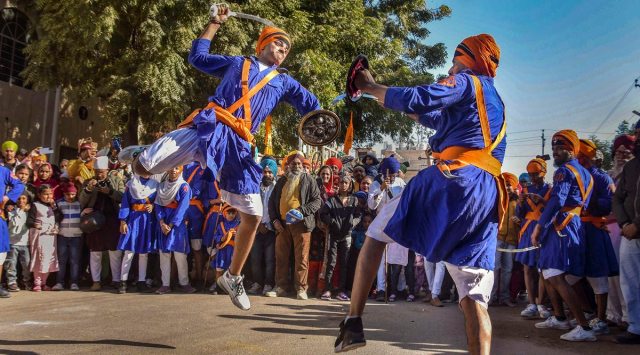
December 26 has been observed as Veer Bal Diwas to commemorate the martyrdom of the “four sahibzadas”, the sons of Gobind Singh, the 10th and last Guru of the Sikhs. This decision was communicated by Prime Minister Narendra Modi. This, he explained, is meant to be “a fitting tribute to the courage of the Sahibzades” and their steadfast adherence to “the noble principles of Dharma”.
Gobind Singh’s four sons were slain in the early 18th century in the course of a confrontation between Sikh militias, and the joint forces of the Mughals and several Hindu chiefs from the Punjab region.
Recently, tellings and retellings of the Sahibzadas’ martyrdom have proliferated in popular media. CBSE schools across the country have been instructed to hold commemorative events to pay homage to them and “observe Veer Bal Diwas in a befitting manner”. Schools have been asked to conduct a series of activities — movie screenings, story-telling sessions, special lectures, essay and poetry writing, etc, to teach their students about the courage and heroism of Gobind Singh’s sons. At a broader level as well, pamphlets, booklets, and WhatsApp messages have been produced in hordes. The central government organised a large-scale event in New Delhi to mark the day, attended and addressed by the Prime Minister. These cumulative developments have expectedly piqued public interest in the subject. There are growing calls now to memorialise this history.
Memory — both individual and collective — is not fixed and unchanging. It is not a one-dimensional, monolithic conception of the past. A contested arena, it always remains in flux, incorporating certain strands while discarding others.
What bits of the past do we choose to remember, and how do we remember them? Correspondingly, which are the aspects that we choose to remain silent on? The issues of remembering and forgetting become even trickier when the past is troubled, strife-ridden and intensely violent. How do we remember such moments from the past, make sense of them, and how do we carry those memories across generations?
The histories and memories of the Holocaust, labours of the Truth and Reconciliation Commission in post-apartheid South Africa, and documentation of struggles waged against colonialism across the world represent some critical attempts at grappling with our tumultuous pasts. These pasts reverberate in and profoundly influence the lived present, and will most likely continue to inflect the future. Closer home, we have the harrowing experience of Partition that resonates even today in powerful ways, modulates relations between individuals and communities and shapes our realities.
How should we memorialise these turbulent pasts? Should we memorialise them to enable healing and regeneration in the present, and foster durable cross-cutting solidarities? Or should we memorialise them to breed hatred and violence in the here and now? Do we transpose the dastardly deeds perpetrated by General Dyer in Jallianwala Bagh in 1919 to British people in general? Thankfully, for most of us, the answer is no. Then, why are we selectively projecting the martyrdom of Gobind Singh’s sons at the hands of Mughal forces in the early 18th century onto Muslims as a community today? In the former case, we are able to think objectively, distance the past from the present and differentiate the two time frames from each other. In the latter, however, we are often unable, or unwilling, to do this and become willfully ahistorical. Why so? Why do we adopt deeply divergent approaches in the two cases? These are fraught questions whose answers have to be sought in our present.
The writer teaches history at Azim Premji University